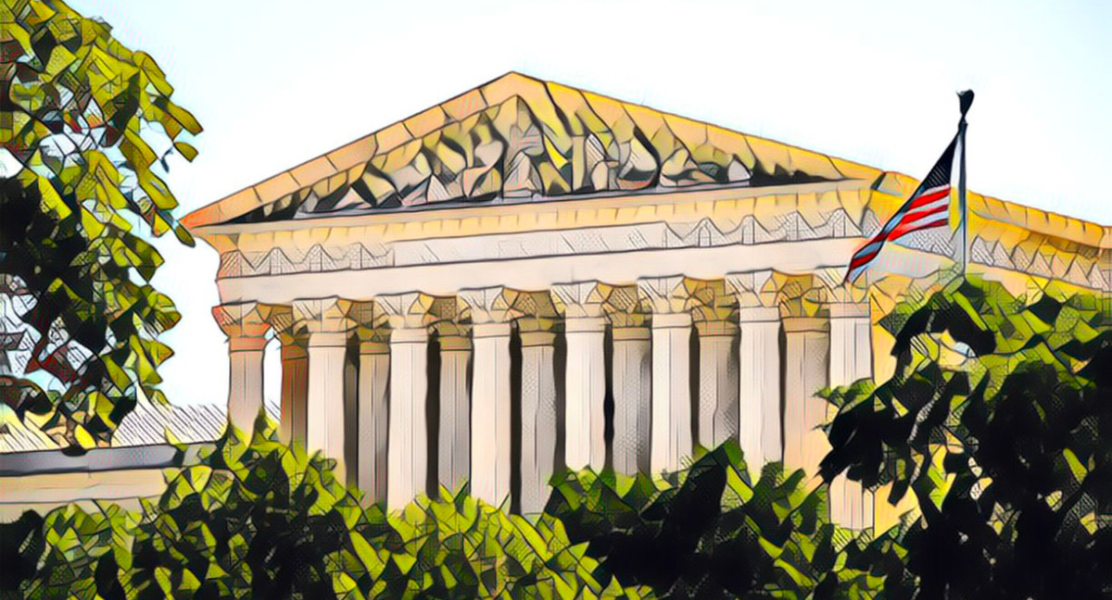SCOTUS hears arguments in pivotal religious liberty case involving the unprecedented creation of religious charter schools
Oklahoma v. Drummond is a critical case.

The U.S. Supreme Court heard oral arguments this week in Oklahoma Charter School Board v. Drummond, a closely watched religious liberty case that may upend decades of precedent barring direct public funding for religious education.
BJC filed a brief urging the Court to affirm the Oklahoma Supreme Court’s determination that accepting a religious charter school – which would become the nation’s first – violates both the state and federal constitutions.
Drummond is a critical case, testing whether long-held Establishment Clause principles in the public school context will endure under the current Court’s trend away from protecting the institutional separation of church and state. As BJC General Counsel and Associate Executive Director Holly Hollman said on the day of the arguments, “This case is a turning point. If the Court compels states to fund religious education through charter schools, it will entangle government with religion in ways the Constitution was designed to prevent.”
The Court’s questions often reflected a sharp split between those who expressed concern about the implications of allowing public charter schools to teach religion on the one hand, and those who believe the exclusion of religious schools from charter school programs impermissibly discriminates against religion. Much of the discussion centered on whether a charter school should be considered a public school – which would be an agent or arm of the government.
Here are a few highlights from the oral arguments.
First, there was this exchange with Justice Elena Kagan and James Campbell, who represented the Oklahoma charter school board:
JUSTICE KAGAN: [W]hen I look at Oklahoma and its charter school program … these schools look like regular public schools. They accept everybody. They’re free. They can be closed down by the state. There’s a good deal of curricular involvement by the state, approvals by the state. They have to comply with all the state’s standards. I mean, if you just go point by point…these charter schools are in every respect equivalent to regular public schools. So why shouldn’t we take the state at its word and say the charter schools are, except for some things on the margin, equivalent to regular public schools, and, as we said in Carson, a state has the right to have its public schools system be … nonreligious? …
They’re subject to the same financial audit and reporting requirements. They’re subject to the same state testing requirements. All curricular changes have to be approved. In the end, the curriculum can’t go forward except for state approval. Proficiency standards are set by the state. Student suspension requirements are set by the state. I mean … these are state-run institutions. They give the charter schools a good deal of curricular flexibility because — because that’s thought to be a good educational thing, is to have curricular options in the school system. But, with respect to a whole variety of things, the state is running these schools and insisting upon certain requirements.
MR. CAMPBELL: The state is not running these schools. These schools are run by the privately selected board of directors of each of the schools. And, if you look in particular at the Oklahoma statutes, specifically Section 3-136, subsection 7, it says that all authority is vested in those govern — in those governing boards of the schools. All that the state is doing here is exercising contractual oversight.
Justice Ketanji Brown Jackson emphasized that the proposed religious charter school in question, St. Isidore, is asking for more than equal treatment:
JUSTICE JACKSON: [Our ruling in] Carson says that a state can permissibly choose “to provide a strictly secular education in its public schools.” And so that appears to be what Oklahoma is trying to do. Now, in this case, St. Isidore doesn’t want to establish a secular school, which is what the public benefit is. Instead, they want to establish a religious school. So, as I see it, it’s not being denied a benefit that everyone else gets. It’s being denied a benefit that no one else gets, which is the ability to establish a religious public school.
Arguing for the Attorney General of Oklahoma in defense of the state’s charter school requirements, Gregory Garre explained that charter schools created and funded under federal law must also provide secular education:
GARRE: A ruling for Petitioners would not only lead to the creation of the nation’s first religious public school, it would render unconstitutional, as my friend from — the Solicitor General acknowledged, the federal charter school program and immediately the laws of 47 states across this country, and it would result in the astounding rule that states not only may but must fund and create public religious schools, an astounding reversal from this Court’s time-honored precedents.
Indeed, the implications of this case could be both unprecedented and far-reaching. As BJC said in a press release:
The consequences could ripple far beyond Oklahoma. If the state is forced to sponsor religious charter schools, public education systems across the country could become battlegrounds over which faiths are favored, forcing taxpayers of all beliefs – and of no belief – to underwrite religious teachings dictated by the government.
A decision is expected by the end of June. Notably, Justice Amy Coney Barrett recused herself from participating in this case, meaning five of the remaining eight justices would have to vote to overturn the Oklahoma Supreme Court. Stay tuned.




